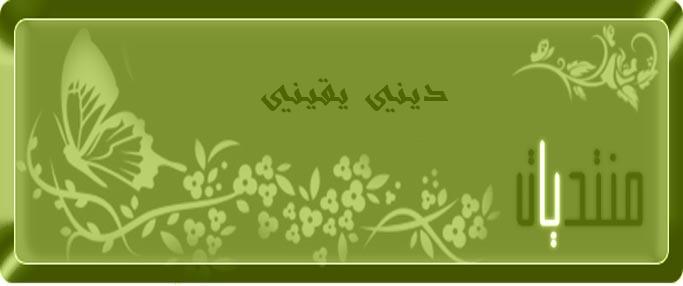Admin

عدد الرسائل : 354
: 
تاريخ التسجيل : 07/02/2009
 |  موضوع: ARTICLES OF ISLAMIC ACTS موضوع: ARTICLES OF ISLAMIC ACTS  الإثنين مايو 09, 2011 6:21 am الإثنين مايو 09, 2011 6:21 am | |
| ARTICLES OF ISLAMIC ACTS
SALAT......
submission five times
daily.
This is the five daily submission and remembrance of Allah the Creator. Muslims must face
the Ka'bah (the First House built by Mankind) in Makkah (Mecca) in Arabia. Salat also
incorporates a prayer (du'a) but the prayer does not necessarily have to be said during
salat. Prayers can be said at any time.
Salat is performed by every Muslim above the age of puberty6
, who is sane and in good health; at dawn, afternoon, before sunset, after sunset and
after nightfall. It involves physical movements of the limbs and recitation of short
verses, in Arabic, from the Qur'an.
Salat involves making the intention of submission to the Creator, recitation of short
verses from the Holy Qur'an, bowing, standing, sitting and prostrating on the earth with
the forehead and praising God while doing these acts. We commence salat by saying
"God is Great" (Allahu Akbar) once and ending it by saying "God is
Great" three times.
The intention for the Dawn Salat is: "Oh Allah my Creator and my Lord, I intend to
offer two rakath of salat for Fajr. I face the Ka'bah and I submit only to You".
Each unit of: Recitation, bowing, standing, prostrating and sitting is called the
Rakath.
The five daily prayers are:
- Fajr (the Dawn Salat) must be performed after the first appearance of light and before
sunrise - two rakath.
- Dhur (the Mid-day Salat) time for salat starts immediately after "proper" noon
and must be performed before the afternoon salat - four rakath.
- Asr (the Afternoon Salat) starts immediately after the Mid-day Salat and must be
performed before sunset - four rakath.
- Maghrib (the Dusk Salat) starts in between dusk and nightfall and can be said up to
mid-night "proper"- three rakath.
- Isha' (the Night Salat) starts immediately after the Dusk salat has been performed and
must be completed before Dawn - four rakath.
- While travelling the Dhur, Asr and Isha' prayers are shortened7
to two rakath.
If two or more people are present, the salat should be said in congregation, where the
salat is lead by one person ( imam).
When performing salat the person has to be physically and ceremonially/spiritually clean.
Physical cleanliness is maintained by washing unclean (najis) things away from the body,
i.e. washing after using the toilet, touching dead or unclean animals, blood etc...... .
Spiritual cleanliness is carried out by performing ablution; before praying or reading the
Holy Qu'ran. The place of salat has to be clean and the consent of the owner of that place
must be obtained beforehand in order to perform salat.

<="" a="">11. SIYAM..... fasting in Ramadan.
It is obligatory for a sane person who has attained the age of puberty to fast during
the month of Ramadan except if the person is travelling or is ill; or if a woman is in her
monthly periods or is bleeding after the delivery of a child. The intention of fasting
from Dawn to Dusk must be made beforehand. e.g. "I intend to fast tomorrow in the
month of Ramadan to attain nearness to you Oh Allah, my Lord and Creator, I only fast for
You."
Fasting for Muslims is abstaining from all things which invalidate it. According to
Shari'ah (Islamic Law) the following in validate a fast:
- eating
- drinking
- sexual intercourse
- to take liquid enema
- to allow dust, smoke or steam to enter into the throat
- to remain in the state of uncleanness until dawn
- to submerge ones' head under water to tell lies (by words, writing or sign) about Allah,
His Prophets or Imams
- to vomit
- to become ill.
The end of Ramadan is celebrated as Eid-ul-Fitr one the 1st of Shawwal (the 1st day after
the end of the month of Ramadan) by giving alms (zakat-ul-fitr) to the needy, attending
morning prayers (Salat-ul-Eid) and a feast. Children receive presents on this day.
(For more on fasting - SIYAM)

<="" a="">12. Zakath and Khums8
......... poor-tax and one-fifth tax.
ZAKAT poor-tax: to be distributed to the poor One and a half percent of the total value of
the9 following items after all expenses have to be
paid as zakat:
- foodstock
- livestock
- gold coins
- silver coins.
It is also recommended to pay zakat on business capital; and also on profits gained from
business. It is obligatory to make intention when paying zakat.
II. KHUMS one-fifth or wealth-tax; payable by the wealthy.
In addition to Zakat it is an obligation on wealthy Muslims to pay Khums.
Khums means one-fifth from the word khamsa in Arabic for five. Twenty percent of the total
value on the following items must be paid as khums:
- wealth which is gained after a just war
- minerals like: gold, silver, oil, iron, salt ...etc.. extracted from ores or the ground
buried treasure
- wealth from the sea e.g. pearls.
- wealth where halal & haram has been unintentionally mixed and the amounts are
unknown
- all profits from business, agriculture, industry or rent from land or property or any
other source of income. After deducting yearly expenses Khums becomes due on net profit.
- land bought by non-Muslim Zimmi (a non-Muslim citizen paying a fixed tax) from a Muslim.
Khums is divided into five parts and each part is allocated for:
- Jihad
- Propagation of Islam
- needy Muslim relatives of the Prophet
- the poor and the orphans
- travellers who have unwittingly become short of funds
Khums can only be distributed by a legitimate ruler of an Islamic State or a 10 mujtahid or a pious descendent of the Holy Prophet.
The following Qur'anic Verse commands Muslims to pay the Khums and how to distribute it: "And
know that out of all that ye may gain a 11 fifth
share is assigned to Allah and to the apostle and to near relatives, orphans, the needy
and the wayfarer if ye do believe in Allah and in the revelation We sent down to Our
servant on the day of testing the day of the meeting of the two forces. For Allah hath
power over all things." (Qur'an 8:41)
It is clear from the above Qur'anic verse and the Hadeeth12
, that to pay the khums is obligatory on all Muslims. In the above verse Allah says ..only
those who pay the khums believe in Allah and the Revelations.

<="" a="">13. Hajj..... pilgrimage
to Makkah (MECCA)
The yearly Pilgrimage13 to Makkah where the First
House that was built by Adam and rebuilt by Abraham (Arab-Ibraham)
and his first born - Ishmael (Arab-Ismail). This House is known as the Holy
Ka'bah. The pilgrimage day also commemorates the day when Abraham was commanded by God to
give his first born as a sacrifice. The last day of Hajj and the two days following are
called Eid-ul-Ahza, day of sacrifice, on this day a special congregational morning salat
is offered and an animal is sacrificed to thank Allah for the sparing the life of
Abraham's son, the meat (4/5th) being distributed to the poor. All the rituals performed
during Hajj are re-enactments of the deeds and actions of Prophet Abraham (a.s) and
his Household.
On one corner of the Ka'bah, which is a cubic shaped house built of bricks
and covered by a black cloth, is placed the black stone. The stone was sent from heaven as
a sign to mankind and Adam (peace be upon him) was instructed to place it in one corner of
the House of God. The black stone is the corner stone of the building!

The Holy Ka'ba in Makkah, Arabia

<="" a="" name="14">14. JIHAD.....
Striving in the way of God.
Working for an honest living, studying to obtain knowledge, being kind to fellow
creatures, helping the needy, being obedient to parents and teachers is Jihad. It is also
Jihad when fighting to liberate the oppressed (the oppressed can be any of Allah's
creatures) against the aggressors. Striving for justice in the way animals are treated can
be classified as Jihad. The ultimate Jihad in Islam is fighting within one's self in order
to destroy false pride, hate, envy and greed.

<="" a="">15. THE MUSLIM SOCIETY
The Muslims adhere to a strict dress code (hijab), abstain from certain types of food
and drink. The Muslim men and women have to be modest in the way they dress. They must not
dress provocatively in order not to offend others. They must not dress too extravagantly
in order to avoid others envy.
Muslims are not allowed to eat pork or the flesh of
unclean animals. They are not allowed to eat the flesh of animals which may be clean, but
they have not been bled since blood is also forbidden. When the animal is slaughtered
without invoking the name of God, then the meat is also forbidden (haram). Alcohol, drugs
and all intoxicants are haram. Anything that is acquired by haram means i.e. theft,
selling alcohol is haram.
Everything that is forbidden is called haram, and everything that is permissible is
known as halal. <="" a="">
 <="" a=""><="" a=""> <="" a=""><="" a="">
<="" a=""><="" a="">16. SOCIAL JUSTICE AND RACIAL EQUALITY
Islam places great importance on social justice and equality of man. Muslims are taught
that all mankind is 14equal in the eyes of God,
be he rich or poor, black or white, man or woman, Arab or non-Arab, except for the pious
who are always superior. We believe that each individual is responsible for his or her
actions so that the parent is not responsible for the actions of the child and nor the
child responsible for the action of the parent. We also believe that God the Most Just
(al-Adhil) will only judge us according to our knowledge and how we acted upon that
knowledge.
 | |
|


